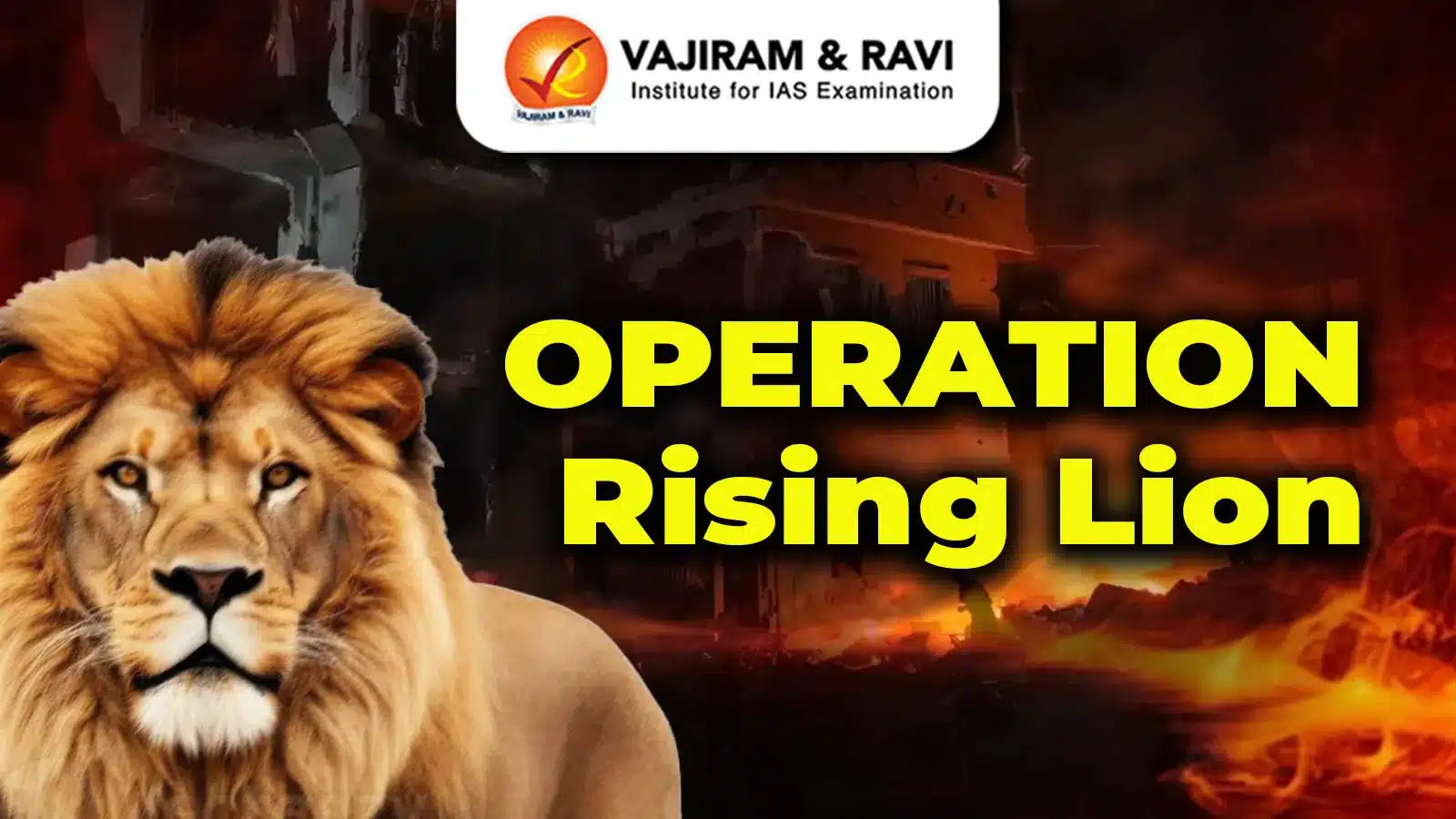Operation Rising Lion is the codename for Israel’s largest and most ambitious military strike against Iran since the 1980-89 Iran-Iraq War.. Launched in the early hours of June 13, 2025, the operation targeted infrastructure within Iran, primarily focusing on nuclear facilities, missile production sites, and senior military leadership. The Operation Rising Lion marks a significant escalation in the rivalry between the two countries, turning covert tensions into warfare.
Operation Rising Lion
Operation Rising Lion marks a significant event in Middle Eastern affairs, highlighting Israel’s determination, military strength, and intelligence capabilities. While this operation has impacted Iran’s nuclear program, it remains too soon to determine how they will affect regional stability or influence Iran’s next steps. Operation Rising Lion could lead to a prolonged period of tension, or possibly create an opening for renewed diplomatic efforts under global pressure.
Operation Rising Lion Background
The origins of Operation Rising Lion stem from Israel’s long-standing concerns about Iran’s building nuclear weapons and its growing influence across the region through proxy groups. For over two decades, Israel has relied on diplomacy, cyber operations like the Stuxnet attack, and covert actions to slow Iran’s nuclear progress. However, Iran’s rising uranium enrichment especially at facilities such as Natanz and Fordow and its repeated threats to exit the Nuclear Non-Proliferation Treaty (NPT) prompted Israel to take more direct military action.
The Operation Rising Lion is codename for “Rising Lion,” inspired by a verse from the Bible (Numbers 23:24): “Behold, the people shall rise up as a great lion.”. The phrase reflects themes of strength, resolve, and readiness to confront threats. Prime Minister Benjamin Netanyahu publicly embraced this symbolism, even placing a prayer note mentioning the verse at the Western Wall just before the operation began.
Operation Rising Lion Objectives
Israel’s stated goals for launching Operation Rising Lion include:
- Strikes were aimed at critical facilities involved in uranium enrichment and weaponisation, including the Pilot Fuel Enrichment Plant (PFEP) in Natanz, the Uranium Conversion Facility (UCF) and Fuel Plate Fabrication Plant (FPFP) in Isfahan.
- Targeting advanced missile manufacturing sites operated by the Islamic Revolutionary Guard Corps (IRGC).
- Dismantling command structures by eliminating senior Iranian military leaders and launch facilities in Kermanshah, Tabriz, and near Tehran.
- The name, timing, and execution of the Operation Rising Lion were all aimed at deterring further nuclear ambitions and showcasing Israel’s willingness to act unilaterally to protect national security.
Operation Rising Lion Reactions
- Iran’s Response
- Iran launched a large-scale strike involving hundreds of drones and ballistic missiles. Iranian officials mentioned the Israeli strikes as “an act of war,” prompting members of parliament to propose legislation aimed at withdrawing from the Nuclear Non-Proliferation Treaty (NPT) and ceasing cooperation with the International Atomic Energy Agency (IAEA).
- The Iranian government also accused Israel of violating international law and vowed a severe response at a time and place of its choosing.
- International Community
- The United States offered indirect support by activating missile defense infrastructure stationed in Israel but refrained from participating in offensive operations.
- The European Union and the United Nations urged both sides to show restraint and avoid further escalation.
- Most Gulf nations issued no public statements, although reports indicated quiet diplomatic alignment with Israel due to mutual concerns over Iran’s regional influence.
- Public Opinion in Israel and Iran
- In Israel, the operation was widely seen as a decisive and well-executed show of strength, earning broad public support.
- In contrast, public reaction within Iran was more divided. While some expressed national unity, others especially in major cities lacking proper air raid shelters, the growing frustration can be seen toward the government’s handling of the crisis.
Last updated on February, 2026
→ UPSC Notification 2026 is now out on the official website at upsconline.nic.in.
→ UPSC IFoS Notification 2026 is now out on the official website at upsconline.nic.in.
→ UPSC Calendar 2026 has been released.
→ Check out the latest UPSC Syllabus 2026 here.
→ Join Vajiram & Ravi’s Interview Guidance Programme for expert help to crack your final UPSC stage.
→ UPSC Mains Result 2025 is now out.
→ UPSC Prelims 2026 will be conducted on 24th May, 2026 & UPSC Mains 2026 will be conducted on 21st August 2026.
→ The UPSC Selection Process is of 3 stages-Prelims, Mains and Interview.
→ Prepare effectively with Vajiram & Ravi’s UPSC Prelims Test Series 2026 featuring full-length mock tests, detailed solutions, and performance analysis.
→ Enroll in Vajiram & Ravi’s UPSC Mains Test Series 2026 for structured answer writing practice, expert evaluation, and exam-oriented feedback.
→ Join Vajiram & Ravi’s Best UPSC Mentorship Program for personalized guidance, strategy planning, and one-to-one support from experienced mentors.
→ UPSC Result 2024 is released with latest UPSC Marksheet 2024. Check Now!
→ UPSC Toppers List 2024 is released now. Shakti Dubey is UPSC AIR 1 2024 Topper.
→ Also check Best UPSC Coaching in India
Operation Rising Lion FAQs
Q1. What is Operation Rising Lion?+
Q2. Why is it called 'Rising Lion'?+
Q3. What was the primary target of Operation Rising Lion?+
Q4. Why did Israel launch Operation Rising Lion?+
Q5. How does this operation relate to Iran’s nuclear program?+
Tags: operation rising lion






















